Chapter 14, from Country
by Shelby Stephenson
Now back to the ballgame, as they say, near the
green fields of home, the frat-boys singing songs the
college crowd loved during those early 1960’s
when “Green Leaves of Summer” rose over the
airwaves and boys and girls starred in Mitch Miller’s
Sing Along showering spaces popularly
elegiac until MM’s demise at ninety-nine
in 2011; meanwhile, the LP output of the Brothers
Four was a real gas. Sparkman, Arkansas, home of
Jim Ed Brown and Bonnie Brown and Maxine,
Louisianan. Their biggest song, “Jimmy Brown,”
not “Jimmy Brown, the Newsboy,” that A.P. Carter
lament: the Browns’s “Jimmy Brown” was based
on the folksong, “Three Bells”: Roy Orbison sings my
favorite version: the old songs gave The Browns popular
sellers like “Scarlet Ribbons” and “The Old Lamplighter.”
Jim Ed, Maxine, and Bonnie sang off and on until Jim Ed
kept singing when the trio stopped: “Pop-A-Top Again,
I Think I’ll Have Just One More Round.” Before I
forget I want you to know that Tom Brumley’s
one of my favorite steel-guitarists; Boudleaux and
Felice Bryant, two of my special songwriters, wrote
Little Jimmy Dickens’s first hit. I learned it because I
am a “Country Boy”: “I’m just a plain old country boy,
a cornbread loving country boy; I raise cane on
Saturday but I go to church on Sunday.” Isn’t
childhood the works? Read Dylan Thomas or
Theodore Roethke: I figure I’m not a failure,
trying to make something out of local
stuff, my years as a boy in the country, the
road not yet paved in my mind, the huge, red-tailed
hawk circling easily out over the five-acre field,
instead of drafting near the house to stir the baby
bluebirds: clearly trouble comes in phases of the
early years; if I do not succeed, I lose the brilliance
of the dwelling I was born in: inviting you, too, to
come, sit a spell, while we talk about words in these
B’s, for example. The Bryants wrote songs on the
funny-side of life−like “Hey Joe.” I learned it from
Carl Smith. The Everlys recorded the Bryants’
“Bye Bye Love.” The Osborne Brothers released
“Rocky Top.” Jim Reeves named his band for “Blue
Boy”: “Hello, I’m Johnny Cash.” My blades get
chummed with black-green, pussle-gutting wads.
The spindles crank under my seat, stalling my
John Deere LT 155 until it chokes down. I
smell a thicket of fishbait. I am no mechanic
want-to-be: I use wheel-chocks when I transport the
mower. I want to learn how to doctor a ratchet; that
is, actually use one. The manual does not say:
Warning: pull strap all the way through slot of
short-hooked end and then hook both ends, ratcheting
the tie-downs three times. Oh those tie-downs −
like the whiskers of Toonces the Driving Cat − they
flow until they almost flap loose from their
moorings meowing along the wind’s road
Immortal Dorkman’s major tune. There is a
lot of bucking, too, especially when I drive over
railroad tracks slow enough to bounce the little
tractor or the Scag, hoping and praying wheels
will not roll, wondering if I locked the brakes. I
perspire. Will the unblocked tires (forgot those
chocks) show me off to Someone Who Knows,
dressed in JD Green − or Scag Orange with that
Tiger Cat logo across the shirt? The cash-register
pings and I pay this time the woman at the
Quality Equipment Company (the John Deere place)
and she says: “Honey, your mower has been
ready since July 20 − we called you and left a
message on your voice-mail machine.” The
burden’s on the payee, isn’t it, the tutee,
underdog. Cricket does not know she’s one:
weighs ten pounds, Long Valley Norwich Terrier,
born, June 22, 2002, breeder, Georgia Rose Crompton:
Cricket’s ten years old on her birthday, 2012: what
beautiful and loyal companion she is: never
smiles, just rolls her eyes around, like that Lucky
Old Sun, waiting for me to come home,
staying by my side without straying, until she
smells an animal and she’s gone, like Don Rich,
that guitar-playing fiddler whose motorcycle did
him in and under: Buck Owens said his “right arm
was gone”: O sleep good and rise, you Buckaroo.
Nin and I saw Buck Owens and the Buckaroos
once at a theatre in Pittsburgh, Pennsylvania.
When I was fourteen at Cleveland School, by the
way, I was in the chorale just long enough to sing
“There’s a pawnshop on the corner in Pittsburgh,
Pennsylvania, and we stroll hand in hand beneath
the clock!” The Buckaroos were dressed in yellow:
Buck looked like Big Bird. To fly you must feel the
fuzz under your armpits and hold on to your seat: it’s
lonely there, hero-worship a far cry from Tom Brumley’s
steeling-glow. Tom’s Albert Brumley’s son. His bar
swoops the neck of his guitar toward
Doyle Holley, Rich, and all the Buckaroos.
Chapter 28, from Country
I don’t want to surf Imagination for any
chronology: surfeit withers like
Saran Cling Plus Wrap with its sharp-cutting
edge, no Hallmark attendance, no Phuns; yet,
pshaw − clear the throat and Hawkshaw Hawkins
appears as a given. Harold Hawkins, the singer
from Huntington, died in the plane crash with
Patsy Cline, Cowboy Copas, and Randy Hughes,
the pilot. I wonder if Hawkshaw of “Dry September”
could sing: I’ll bet he hummed some amid the
powder and the pomade, hemming and hawing, trying
to make a difference among cowards ganging up
on Will Mayes: Hawk knew Mayes did not harm
Miss Minnie Cooper; yet he went along with the
lynching party, maybe hoping to help throw off
balance the whole bunch − Butch, McLendon, and the
hot-heads − faithful their rage might pummel evil into
bigotries too many to matter, Will calling Hawk,
Mr. Henry. Like a sharp-eyed detective
Hawkshaw Hawkins was a hunter in his youth. Why,
he might have been called “Hare,” I suppose, for
I’ve read he traded some rabbits he shot for a guitar: since
Wheeling was near, he was close to the WWVA
Jamboree, starred there, regularly, in the early 50’s,
appearing also on Red Foley’s Jubilee on ABC-TV:
my junior year at Cleveland High he joined the
Opry, 1955: Saturday nights I’d hear him on WSM,
650 A.M., the Air Castle of the South: “Sunny Side of the
Mountain,” “Barbara Allen”; “The Little White-washed
Chimney” he sang his heart out on, gathering in the
boy he was, born 1921, died 1963 near Camden,
Tennessee, in that airplane which fell into pieces
approaching Nashville: the troupe had done a
benefit in Kansas City, Kansas, for the widow of
“Cactus” Jack Wesley Call, a local DJ, who died in
a car crash, the chain of wrecks continuing after the
plane scattered on the ground, when Jack Anglin,
tenor singer of Johnny and Jack, got killed in a
highway wreck on his way home near Nashville,
after attending a memorial service for Patsy Cline:
to eulogize his friends in his song Tex Ritter rewrote
his “Hillbilly Heaven.” I’ve levitated in lofts as a
boy − you could say without much pretense I could
have been the Billy in the Low Ground, for I have
pronged hay with forks and pitched it; in the fall
when brown leaves call, I have set my fields on fire;
I have showered sparkles, too, with the folks at
PoetrySpark, at a Sizzle in Raleigh, reading with
poet David Rigsbee: we did not let the flame get
out of hand in the room we were in, a dressed-up
backend of a bar and grill, money exchanging in
front, but one − to be heard − did kiss a microphone
which smelled like a breath birthing breadthways
so the audience could hear: I could feel Poetry Central
lowering its bar to carry on without me: first reciting
Emily’s “Hope is the thing with feathers” and an
Ammons ditty from Sphere about verse dithering
among loose vowels or “sun-thing” like that, I
presented “Etching” from my Possum and finished off
with “Refrain” from Family Matters: Homage to July,
the Slave Girl in part about that ten-year-old
who took me away; art quailed, images fell
amuck, trucks on the streets ran into man-holes
withering to size and fed the underground metaphors
Stevens’s angels could have mixed, my underwear
shifting, the mike outright stinking: I could tell
the audience might not have come there to hear me
imagine what life’s like on my greatgreatgranddad’s
plantation: or, maybe I am wrong and some are
right: certainly, by jostling history to Poetry Personal, I
did not usurp the drinkers listening to “I’ll Take You
Home Again, Kathleen”: I lend and lean PoetrySpark from
this terrace under D’s Canopy, the same old place Nin
fell into a depression for the I-don’t-know-what-time.
The mockingbird’s singing in the Nellie Stevens holly.
Cricket’s watching the shadows for wings leafing the
hollering geese: the tulip poplar’s leaves fill the lawn
right where I ran the Scag and made the grass pretty; yet
the eye, my pupil, most of all, must find me, as I
evoke George D. Hay again, radio-station executive, announcer,
reporter, editor, Indiana-born, 1895, died, Virginia, 1968,
elected Country Music Hall of Fame, same year: I have brought up
the rear of multiple careers all my life: at first all I
knew was singing − and maybe that’s the last thing I know:
when I was fifteen I ordered from WSM A Story of the
Grand Ole Opry by George D. Hay, “The Solemn Old Judge”
(Copyright, 1953, by George D. Hay); after all these
years I’ve lived with the book − a pamphlet
sixty-three pages, first edition, price, $1.00,
privately printed. I took it off the shelf and a
cut-out fell out, a paper microphone, WSM, I
crafted for Miss Galloway’s typing classes I
took in 1954 and 1955: no “strikeovers,” she’d say:
now what can I say: that there were three books
in our house in ’53 − the Big Family Bible
(Southwestern Publishing House, Nashville, Tennessee),
a Sears Roebuck Catalogue, and A Story of the Grand Ole Opry:
life’s more than a bunch of crows cawing over western
Johnston County: doesn’t a life of poetry fill with the
marvelous and the shaky, solid rays of suns the world
over, with rags and children in them, fashions sparkling
bold and arrogant; ravens tagging the tops of sycamores
as one settles in the tip of a very slim-needled stem atop
a pine in Danny Langdon’s meadow, Danny, walking
up to me, cicada’s hull in his beard, while Nin
waits to come out, be counted and courted again.
George D. Hay started in real estate, taking a
job with the Memphis Commercial Appeal, then
turning to Radio, his birthday radiating between the
births of Paul Green (1894) and William Faulkner (1897):
I can see my father’s Philco on the little vanity by the
kitchen-sittingroom window, the radio’s top hot from the
blue-green-rose tubes in the casing, the noise a crackle, some
snaps, pops, rattle: I’ve read that Hay was the first to report the
death of President Harding, 1923: more people knew Hay’s
name after that; he became main announcer for WLS,
Chicago: my namesake Shelby Jean Davis he must have
known: by 1925 Tennessee got WSM, owned by
The National Life and Accident Insurance Company:
Hay put fiddling Uncle Jimmy Thompson on the
radio, called the show The WSM Barn Dance,
November, 1925, probably not a rainbow in sight, Hay
saying something like The clouds are grand with
opera; now the land’s full of grasshoppers hopping and
hoot owls hooting; cotton blooms a shindig and so
do we: Welcome to the Grand Ole Opry! The Dixie Dew Drop,
Uncle Dave Macon, came on in ’26: the Fruit Jar Drinkers,
the Gully Jumpers, the Possum Hunters, Delmore Brothers:
Sam and Kirk McGee from Tennessee: Hay brought in
there, on stage, a real steamboat whistle and he
blew that thing; the clear channel station went out
into the land, all over here near Benson: I listened:
peripheries found me, the long rows without end − go to
the end and turn around, a through and a round: feed the hogs,
water the mules, and watch out for snakes in the corncrib: the
people said You will wither with the wheat and the corn in
fall and shocks shall stand tall and you shall still miss the
image seeking you all the more, life and death informing life
and death, the living and the dying, the call of the payment and the
pavement in the central empire of the marginal: dirt roads and
woods shall celebrate triumph and return, as sorrow’s
by your side and memory your foundation.
Chapter 47, from Country
From Paul’s Hill for my country all the songs in the book
for the singers and the songwriter-poets I sing −
“If That’s the Fashion” and “If You Ain’t Loving, You Ain’t Living.”
Songwriter: Tommy Collins (Leonard Sikes). Like a Bird of Dawning
I’ll chant all night long for the Pythian Home − and for orphans − for
Leon Payne’s “I Love You Because” and let the
pages record Gene Autry’s rendition of Ted Daffan’s “I’m a Fool to Care.”
Marty Robbins just about weeps “I’ll Go On Alone.” “Is It Too Late Now?”
Listen to my brother Brown and me perform a Flatt & Scruggs Songbook.
Picture me crooning “I’ve Always Wanted you,” one of the first
country songs I heard Sonny James smooth seemingly out of drops
bubbling tears in his throat. I’m prepared to sing Marty’s
“I’ve Got a Woman’s Love” he sang for his wife Marizona. I shall sing it for
Nin: no longer impatient with scores and chords, I’ll ford the river: “I Won’t
Have to Cross Jordan Alone,” my Dell laptop changing and moving
words − Salute! − the Esterbrook Fountain Pen I wrote in flowery permanence
the songs in my book (ink was less expensive than the Ball Point, invented the year
I was born): the long run stretches “Just Out of Reach of My Two Open Arms,”
V. F. (Pappy) Stewart waiting for Faron Young to tune body and soul, as I
make that creation the origin of my teen years: Ferlin Husky:
I bought the album-turned CD − “Among My Souvenirs”: Ferlin
died, March, 2011. Merle Haggard said: “There were a lot of years
when nobody in the business could follow Ferlin Husky.
He was the big live act of the day. A great entertainer.”
Now stand up for Nelda Fairchild, the real author of “Kisses on Paper”:
May Ned (her pen-name − reap heaps): “Kiss Me Big,”
Ernie Ford’s novelty, breaks out of Speedy West’s steel and
Jimmy Bryant’s strings. Catch the sound of Wade Ray’s lament against
that Devil Booze (“Let Me Go, Devil”). “Letters Have No Arms”−Ernest Tubb
had a hand in writing − I learned it from Wade Ray and the Cow Town Five,
D-J-ing my life away, part-time, WMPM, Smithfield, North Carolina.
Sense in Ray’s version of “It’s All Your Fault” the poetry Cindy Walker pens.
May I remember the first stanza of “Look What Followed Me Home Tonight,”
lost from the little book: deliver Newt Richardson’s and Vic McAlpin’s lyrics
for “A Lover’s Quarrel.” “Mister Sandman!” Popular in the 50’s when I made
my book while Webb Pierce sang Merle Kilgore’s “More and More” and Carl Smith
cried out for all tomorrows Leon Payne’s “More Than Anything Else in The World.”
Like most of Payne’s songs, this one feels like a poem and
a love-story: “More than anything else in the world I want to hold
you in my arms, darling, when you are near, then everything seems
all right.” “One Has My Name, the Other Has My Heart”
(Eddie Dean, Dearest Dean, Hal Blair) I learned from my
brother Paul who sang it in the late 1940’s as part of the Campus Playboys when
he was a student at Louisburg College, Louisburg, North Carolina.
Paul also sang and played rhythm guitar with The Moonliters,
a band which played around Raleigh, North Carolina.
Jim Fleenor played clarinet in the Campus Playboys
band, after college, returning home to Abingdon, Virginia, where
he presented full craftily for decades his clarinet in The Highland Quintet − east
Tennessee, southwest Virginia, and western North Carolina:
Freddie Hart’s “Loose Talk” I learned from Carl Smith: Buck Owens and
Rose Maddox recorded a blazing version of the song, a real country feel in it,
a smell of pending divorce court and family matters, gossip, deceit:
“We have to leave here to find peace of mind, dear, some place where we
can live a life of our own, for I know you love me and happy we could be
if some folks would leave us alone”: “Pretty Words,” Marty Robbins: one
of my mother’s favorite songs and mine, too: “Pretty words were like heaven to me”:
“Release Me,” Eddie Miller, Dub Williams, Robert Yount, listed
as writers: my favorite version: Ray Price’s: everybody
recorded it, just about: “Rosetta” I got from Wade Ray. Earl Hines
and Henri Woode, writers: Bob Wills sang it too, recorded it. He loved the song,
named a daughter − Rosetta. Leon Rausch recorded it with Tom Morrell and
the Time-Warped Top Hats: “San Antonio Rose” − Bob Wills − one of
the all-time classic swings: Nin and I sing it often to hear the players play:
“Someone to Care,” one of my favorite sacred songs, “Jimmie Davis”:
“That’s the Good Lord Saying Good Morning,” “Tex Williams”:
I must have liked the song for the pop-poetry: the world as
Nature, I would learn later: “When the meadowlark sings at dawning
and the wind’s in the willow trees, that’s the Good Lord saying good
morning, good morning to you and me”: “That Silver Haired Daddy of Mine,”
written, Gene Autry, a standard I sing. How many more! “A Place for Girls Like You,”
Red Hays, writer, Faron Young, singer. On this hill, through the fields,
Brown and I harmonize “Talk of the Town,” one we learned from
Don Reno and Red Smiley, early 50’s: I remember
they had the song on King: O Songs of King! When the last breath
I take among days of shadows and desert-rattling water, “Then I’ll
Stop Loving You?” I’ll bow to Jim Reeves who’ll sing it, while Wade Ray
bows his fiddle and wails “Too Late to Cry.” Noel Boggs shall play his steel guitar;
Irving Berlin’s “White Christmas” bless the flakes as Eddy Arnold falls for all
who’ll listen. I’ll take your hand, Lord, and my brother’s banjo shall roll out
“I’m Using My Bible for a Roadmap” and “The Wiggle Worm Wiggle.”
Jim Eanes’s melodies shall sprindge from his hand burned when he was a
child, a bad fire inspiring with ardor “Down Among the Budding Roses.” Shoots
shall shower Little Jimmy Dickens jumping backwards through a hula-hoop,
simultaneously pantomiming “Thank You” in rhythm to Thank You! painted on the
back of his acoustic Gibson guitar twirling amid the crowd’s rousing music’s
waves, rescuing you and me, O Reader, from the Hand of Many Falsehoods: I
exclaim to the Boy back there on the Hill, “You’re Under Arrest (for Stealing My Heart),”
Autry Inman and Bill Foster hoping Ray Price and the Drifting Cowboys
might turn good bad verse into frogskins and liverwurst, leaving the
image of theft and scary, sorry lines in corncribs for the rats and
mice that’ll bring back corn they stole last winter: George Washington’s
picture shall show supreme! “You’ll find that crime doesn’t pay;
your sentence is life, darling, here by my side, this is the price you must pay.”
BIO
 Shelby Stephenson’s Family Matters: Homage to July, the Slave Girl won the 2008 Bellday Poetry Prize, Allen Grossman, judge. Shelby Stephenson’s The Hunger of Freedom (2014) was published by Red Dashboard.
Shelby Stephenson’s Family Matters: Homage to July, the Slave Girl won the 2008 Bellday Poetry Prize, Allen Grossman, judge. Shelby Stephenson’s The Hunger of Freedom (2014) was published by Red Dashboard.
 Tamer Mostafa’s work has been featured in California Quarterly, The Rag Literary Magazine, Poets Espresso Review, Confrontation Literary Magazine, Stone Highway Review, and No Infinite. He was the recipient of the 2011 CSU Sacramento Bazzanella Literary Award in Creative Non-Fiction and the 2013 Lois Ann Latin Rosenburg Prize for Poetry.
Tamer Mostafa’s work has been featured in California Quarterly, The Rag Literary Magazine, Poets Espresso Review, Confrontation Literary Magazine, Stone Highway Review, and No Infinite. He was the recipient of the 2011 CSU Sacramento Bazzanella Literary Award in Creative Non-Fiction and the 2013 Lois Ann Latin Rosenburg Prize for Poetry.


 Christopher Suda’s poetry has been published in blazeVOX, Wilderness House Literary Review, The Aura Literary Review, Poetry Super Highway, The Wayfarer, Danse Macabre, Drunk Monkeys, and other literary journals. Christopher is currently a twenty-four year old undergraduate at the University of Alabama at Birmingham. He is a musician involved in three current music projects: Philos Moore (singer-songwriter) In Snow (Instrumental), and Loveislight (Experimental Hip-Hop).
Christopher Suda’s poetry has been published in blazeVOX, Wilderness House Literary Review, The Aura Literary Review, Poetry Super Highway, The Wayfarer, Danse Macabre, Drunk Monkeys, and other literary journals. Christopher is currently a twenty-four year old undergraduate at the University of Alabama at Birmingham. He is a musician involved in three current music projects: Philos Moore (singer-songwriter) In Snow (Instrumental), and Loveislight (Experimental Hip-Hop).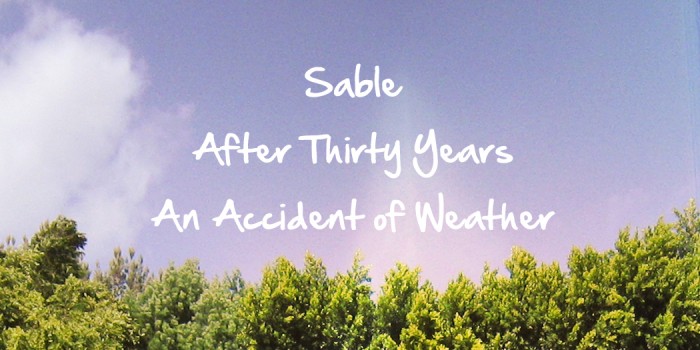
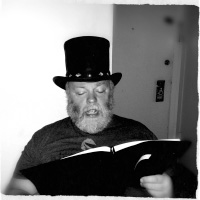 Raised in New Jersey, Robert Lavett Smith has lived since 1987 in San Francisco, where for the past fifteen years he has worked as a Special Education Paraprofessional. He has studied with Charles Simic and Galway Kinnell. He is the author of several chapbooks and two full-length poetry collections, the most recent of which is Smoke in Cold Weather: A Gathering of Sonnets (Full Court Press, 2013).
Raised in New Jersey, Robert Lavett Smith has lived since 1987 in San Francisco, where for the past fifteen years he has worked as a Special Education Paraprofessional. He has studied with Charles Simic and Galway Kinnell. He is the author of several chapbooks and two full-length poetry collections, the most recent of which is Smoke in Cold Weather: A Gathering of Sonnets (Full Court Press, 2013).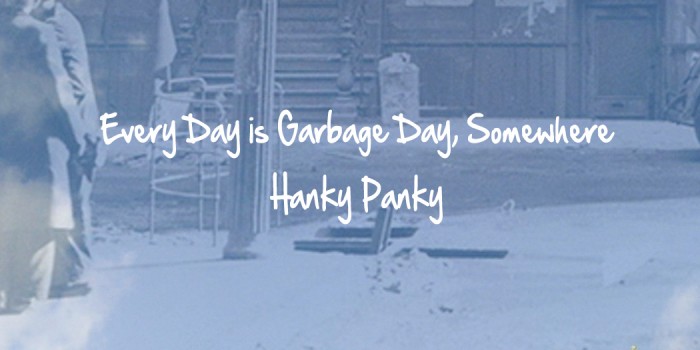
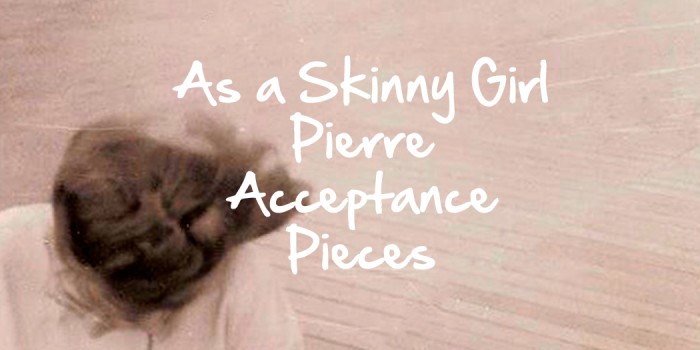
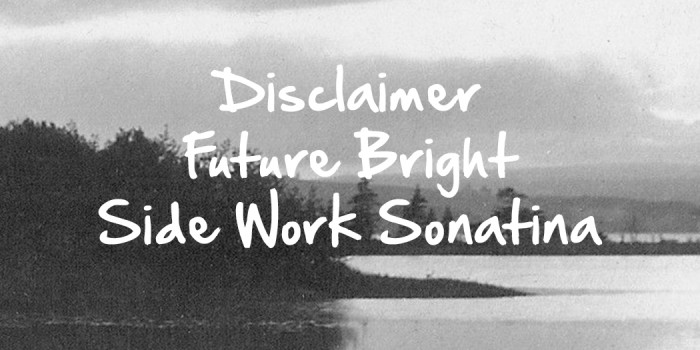
 R.A. Allen’s poetry has appeared or is forthcoming in New York Quarterly, Night Train, Mantis, RHINO Poetry, Gargoyle, The Recusant (UK), and elsewhere. His work has been nominated for a Pushcart Prize. He lives in Memphis for the humidity. More at http://poets.nyq.org/poet/raallen
R.A. Allen’s poetry has appeared or is forthcoming in New York Quarterly, Night Train, Mantis, RHINO Poetry, Gargoyle, The Recusant (UK), and elsewhere. His work has been nominated for a Pushcart Prize. He lives in Memphis for the humidity. More at http://poets.nyq.org/poet/raallen
 Adefisayo Adeyeye lives and works in Southern California. He enjoys the connections between the cosmically large and the infinitely small. He has had works published by Petrichor Machine, Ohio Edit, and Near Rhyme, and he is the editor-in-chief of a literary magazine named Ant vs. Whale.
Adefisayo Adeyeye lives and works in Southern California. He enjoys the connections between the cosmically large and the infinitely small. He has had works published by Petrichor Machine, Ohio Edit, and Near Rhyme, and he is the editor-in-chief of a literary magazine named Ant vs. Whale.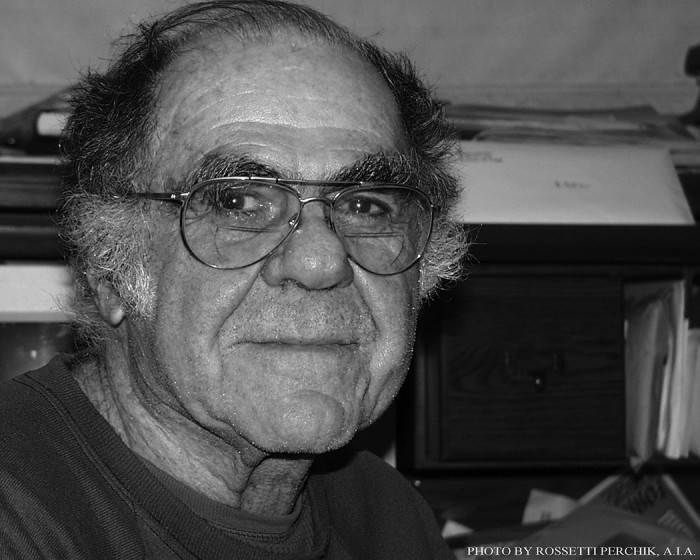
 Simon Perchik is an attorney whose poems have appeared in Partisan Review, The Nation, Poetry, The New Yorker, and elsewhere. His most recent collection is Almost Rain, published by River Otter Press (2013). For more information, free e-books and his essay titled “Magic, Illusion and Other Realities” please visit his website at
Simon Perchik is an attorney whose poems have appeared in Partisan Review, The Nation, Poetry, The New Yorker, and elsewhere. His most recent collection is Almost Rain, published by River Otter Press (2013). For more information, free e-books and his essay titled “Magic, Illusion and Other Realities” please visit his website at 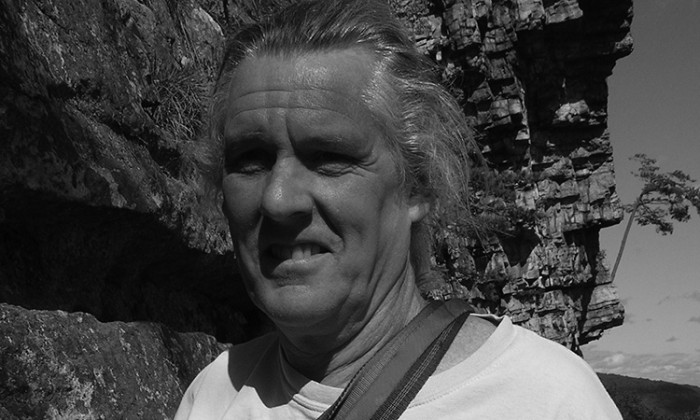
 Joseph Ferguson is an author, poet, and journalist appearing in a variety of small press, regional and national publications. He wrote propaganda for a living for a variety of entities for some 25 years. He is a former editor and critic for Hudson Valley, ran the Fiction Workshop for the Poughkeepsie Library District, and regularly reviews books and videos for Climbing, The American Book Review, Kirkus Indie, and a number of other publications.
Joseph Ferguson is an author, poet, and journalist appearing in a variety of small press, regional and national publications. He wrote propaganda for a living for a variety of entities for some 25 years. He is a former editor and critic for Hudson Valley, ran the Fiction Workshop for the Poughkeepsie Library District, and regularly reviews books and videos for Climbing, The American Book Review, Kirkus Indie, and a number of other publications.
 Dan Fitzgerald started writing a number of years ago. It has only been in the last few years that he has been published. He worked for a long time in the prepress print industry but technology has taken those jobs away. He is currently employed in the meat and bakery departments of a local grocer in Pontiac, Ill. He is hoping that they will open a candle department to further his career.
Dan Fitzgerald started writing a number of years ago. It has only been in the last few years that he has been published. He worked for a long time in the prepress print industry but technology has taken those jobs away. He is currently employed in the meat and bakery departments of a local grocer in Pontiac, Ill. He is hoping that they will open a candle department to further his career.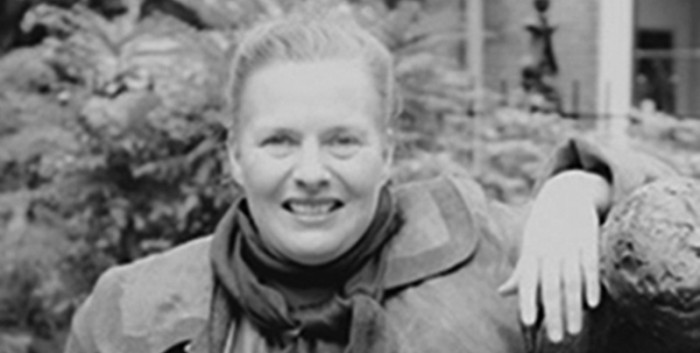
 Persephone Abbott has been composing poems in her head for years. In this way, before they have the opportunity to meet paper, many poems have already been lost, or heavily edited. A book of her short stories, A Sample of Gouda (2014), as well as an alternative walking guidebook, The Bee’s Tour of Gouda, Buzzing Though Vinita’s Lens (2012), have been published and she is currently working on a chapbook, Flowers of Amsterdam. This last item is a result of her recent move from Gouda to Amsterdam, both situated in the Netherlands. Persephone finds poetically she prefers urban vines to rural pastures.
Persephone Abbott has been composing poems in her head for years. In this way, before they have the opportunity to meet paper, many poems have already been lost, or heavily edited. A book of her short stories, A Sample of Gouda (2014), as well as an alternative walking guidebook, The Bee’s Tour of Gouda, Buzzing Though Vinita’s Lens (2012), have been published and she is currently working on a chapbook, Flowers of Amsterdam. This last item is a result of her recent move from Gouda to Amsterdam, both situated in the Netherlands. Persephone finds poetically she prefers urban vines to rural pastures.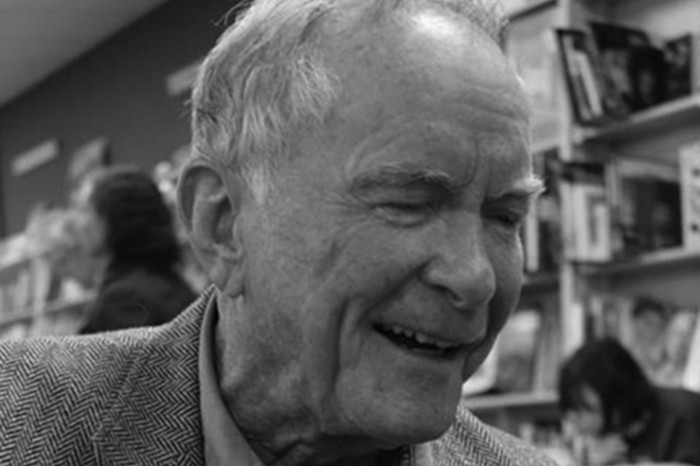
 Shelby Stephenson’s Family Matters: Homage to July, the Slave Girl won the 2008 Bellday Poetry Prize, Allen Grossman, judge. Shelby Stephenson’s The Hunger of Freedom (2014) was published by Red Dashboard.
Shelby Stephenson’s Family Matters: Homage to July, the Slave Girl won the 2008 Bellday Poetry Prize, Allen Grossman, judge. Shelby Stephenson’s The Hunger of Freedom (2014) was published by Red Dashboard.
 Darren C. Demaree is the author of “As We Refer to Our Bodies” (8th House, 2013), “Temporary Champions” (Main Street Rag, 2014), and “Not For Art Nor Prayer” (8th House, 2015). He is the recipient of three Pushcart Prize nominations and a Best of the Net Nomination. He is currently living in Columbus, Ohio with his wife and children.
Darren C. Demaree is the author of “As We Refer to Our Bodies” (8th House, 2013), “Temporary Champions” (Main Street Rag, 2014), and “Not For Art Nor Prayer” (8th House, 2015). He is the recipient of three Pushcart Prize nominations and a Best of the Net Nomination. He is currently living in Columbus, Ohio with his wife and children.











